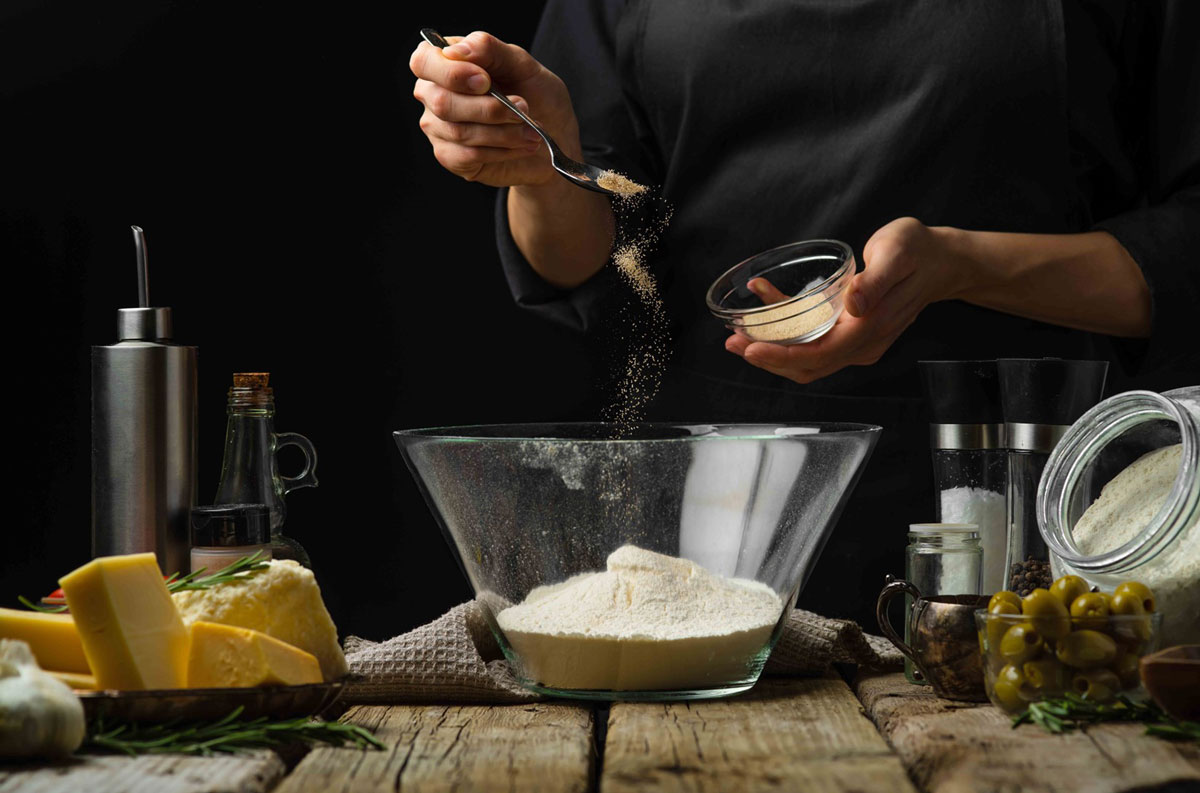Baking was one of the more popular indoor activities that people took up during the pandemic. Celebrities and ordinary people traded starters, recipes, and baking tips. So surely bread eating increased across the world.
Yeast is a common ingredient in bread making, and yeast makes a versatile metaphor. Yeast is a living organism with chromosomes and DNA and, thus, a eukaryote. And yeast as a single-cell organism reproduces and converts sugars and starches into alcohol and carbon dioxide in fermentation. This makes this naturally occurring fungi popular among wine and beer makers and bakers.
The art of bread making often includes adding yeast to flour and water. This initiates a process where carbon dioxide is released into the dough, causing it to rise. A little yeast is all it takes to begin the transition, which is aided by creating conditions conducive to the fungi’s growth.
However, not all bread is made with yeast. For example, Matzo is a popular bread among people of the Jewish faith that is eaten during the celebration of Passover. A tradition began during the Exodus as the Hebrew slaves were instructed to bake bread without yeast. There was no time to wait for the dough to rise, and it’s said that the people “took their dough before the yeast was added, and carried it on their shoulders in kneading troughs wrapped in clothing” (Exodus 12:34).
According to an article by Steve Nubie, published in Off the Grid News, Matzo was an obvious choice for their trip into the wilderness. Without yeast and properly stored, Matzo could last several years without molding.
As I mentioned earlier, yeast causes bread to rise and helps beer and wine ferment by turning sugar and starch into alcohol. And yeast is also a versatile metaphor to illustrate the power that a little fungus can have on a large batch.
I don’t remember the first time I heard the ancient wisdom that “a bad apple spoils the whole bushel.” But I’m guessing it had something to do with choosing persons I would spend time with and how I might be negatively influenced.
Jesus used yeast similarly when He cautioned followers about listening to the religious leaders who opposed Him. In one story found in Matthew, several religious leaders were pressing Jesus for a miracle to trap Him. Afterward, Jesus tells His followers to “be on guard against the yeast” coming from them.
In his version of this story, Luke claims that Jesus was referring to the hypocrisy of the religious leaders, not their actual words. This interpretation is supported elsewhere in scripture by Jesus in His criticism of persons who instruct one way but live another.
Get the point? So did Jesus only eat bread that wasn’t made with yeast?
The Kingdom of God is like this — a baker takes some yeast and mixes it with a bushel of flour until the whole batch of dough rises.
Luke 13:20-21
Perhaps, but before jumping to this conclusion, let’s consider a comparison that Jesus makes between yeast and the Kingdom of God. In Luke, we read Jesus saying that the Kingdom of God “is like taking a little yeast and mixing it with a bushel of flour until the whole batch of dough rises” (Luke 13:21).
So the corollary to the ancient wisdom is that good yeast makes great bread, fine wine, and tasty beer. Likewise, avoiding hypocrisy is a good recipe for a better life. Fortunately, avoiding hypocrisy is simple. Just do that which you say you plan to do.
If avoiding hypocrisy is so simple, why are Christians known more as hypocrites than as people who follow the teachings of Jesus? It’s complicated because you and I have layers of good and not-so-good experiences influenced by unholy temptations.
In other words, it is nearly impossible to avoid all the bad yeast surrounding us.
Fortunately, we’re also surrounded by God’s Spirit. So while we can’t avoid all of the bad things in life, and every one of us makes less than stellar choices, we can stay in constant touch with God. One way to do this is through prayer. In our next series titled Pray, we’ll dig into the prayer life of Jesus in more detail.
Just as important as prayer, in avoiding hypocrisy, is worship.
You can join us each Sunday in person or online by clicking the button on our website’s homepage – Click here to watch. This button takes you to our YouTube channel. You can find more information about us on our website at FlintAsbury.org.
A reminder that we publish this newsletter that we call the Circuit Rider each week. You can request this publication by email. Send a request to connect@FlintAsbury.org or let us know when you send a message through our website. We post an archive of past editions on our website under the tab, Connect – choose Newsletters.
Pastor Tommy
Content for this series is based in part on:
Candace Simpson. Who Can We Be Together? A Biblical Exploration of Luke 13. New York: United Methodist Women, 2022.
Steve Nubie. “Long-Lasting Breads You Can Stockpile For YEARS and YEARS.” © Off The Grid News, date. Retrieved from: link
Lindsey Valich. “Baker’s yeast: Three surprising things you might not know” © University of Rochester, February 18, 2021. Retrieved from: link
Eric Ferreri. “After 9/11, A Short-Lived Rush to Church.” © Duke Today, August 19, 2016. Retrieved from: link

